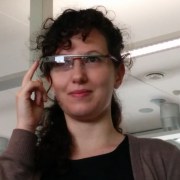Can a game make you choose healthier food or make you avoid air pollution? Let’s discuss how serious games can be serious game changers and explore how they can change not only what people know, but what they think and how they behave.
Neurological and psychological research shows that games can be utilised to facilitate learning and improve our memory. Further evidence shows that games can change how we think or feel around a topic. Science games are increasingly popular as learning tools. Especially in areas of science with a behavioural message, such as health or the environment, we may also want to influence people’s attitudes or even what they do.
After a short introduction to some of the underlying background and psychological theories, we will explore case studies of games promoting healthy food or asthma education. We will talk about the practical challenges of developing a serious science game and how to evaluate their effect.





